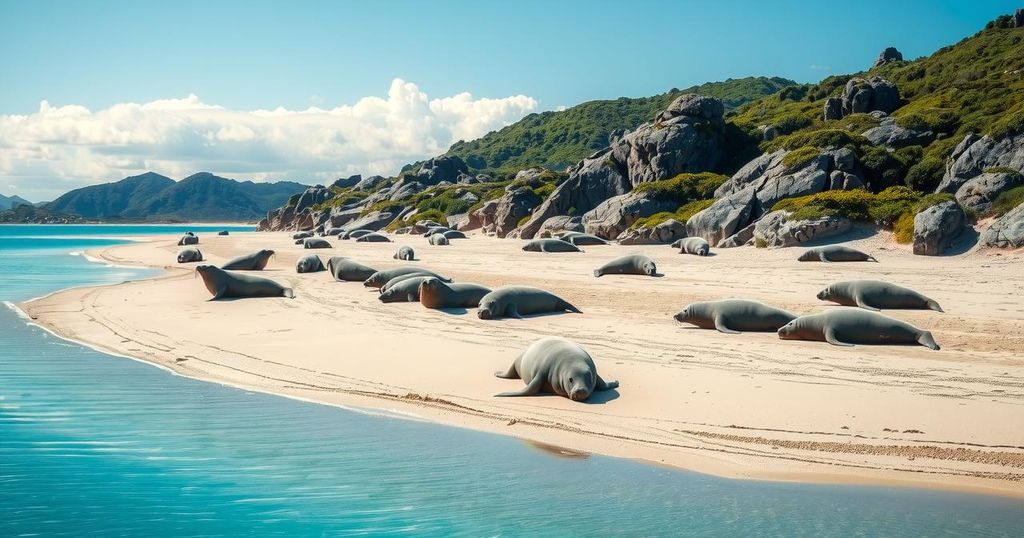Historical Significance of Southern Elephant Seals in New Zealand: A Call for Conservation

Research reveals that southern elephant seals once populated New Zealand, highlighting their critical ecological role and the impacts of climate change and human influence. The study utilized palaeogenetics to trace their historical presence, revealing that these seals were once abundant but faced severe range reductions due to various factors, including human activities. The findings call for immediate conservation actions to protect the species and the Southern Ocean ecosystem.
Recent research highlights the historical presence of southern elephant seals in New Zealand, offering critical context regarding their ecological role and the potential impacts of climate change. Associate Professor Nic Rawlence, who leads the Otago Palaeogenetics Laboratory, noted that these seals were once abundant along New Zealand’s beaches, coexisting with fur seals, prehistoric sea lions, and numerous penguins. This situation contrasts sharply with contemporary perceptions of New Zealand’s environment.
The study, conducted by an international team led by postgraduate students from the University of Sydney and the University of Otago, utilized palaeogenetic techniques to analyze ancient specimens from New Zealand, Tasmania, and Antarctica. The findings published in the journal Global Change Biology indicate that southern elephant seals once thrived across the Southern Ocean but suffered significant range reductions due to climate change and human activities.
Dr. Mark de Bruyn from Griffith University emphasized that both indigenous hunting practices and European sealing contributed to their decline, confining them to the deep Southern Ocean, ultimately leading to their extinction in Australia and New Zealand. Rawlence pointed out that understanding the seals’ responses to historical changes could provide valuable insights into the future of the species and the Southern Ocean ecosystem.
He further warned that unless proactive measures are implemented to address human-induced climate change and protect marine ecosystems, the prospects for both the elephant seals and the Southern Ocean remain grim. The comprehensive study titled ‘Postglacial Recolonization of the Southern Ocean by Elephant Seals Occurred From Multiple Glacial Refugia’ can be found in Global Change Biology.
The study underscores the historical significance of southern elephant seals in New Zealand while drawing attention to the detrimental impacts of climate change and human activities on their populations. The ongoing research serves as a crucial indicator of the potential challenges facing the Southern Ocean ecosystem and emphasizes the urgent need for conservation efforts to safeguard these majestic creatures and their habitats.
Original Source: news.griffith.edu.au






